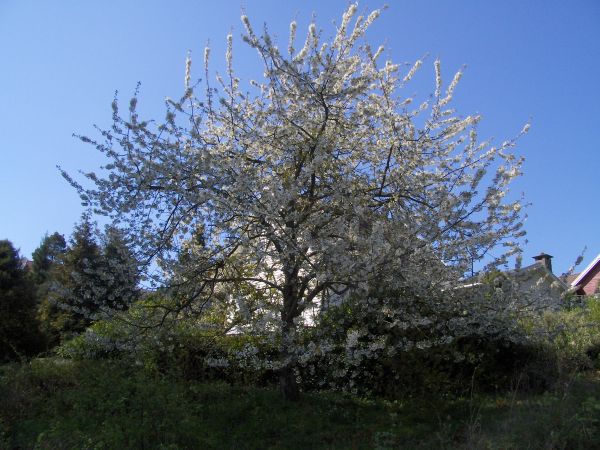This tree did not become like that in 30 days either. Â Keep it up.
I believe that meditation is a natural state of mind, one of several, just like the various phases of sleep and waking consciousness. All of these have their place in a healthy human life, but they have different weight through our lifetime.
In part I base this on the fact that meditation in some form (or some similar experience) is found in different cultures at different times of history as part of very different and sometimes opposing cultures. But it is also based on my own experience. As I like to say, I learned meditation from God. I was praying and I found it rude to just rattle off a wish list and hang up. So I waited for God, not necessarily to speak to me as some guy would do (I already knew better than that) but to somehow accept my presence. And in that wordless waiting, something began to know. This was where I learned to meditate, although I did not know it by name until a more advanced Christian came upon me when I thought myself alone with God, and commented on it.
Occasionally others will tell their own story about experiencing this inner stillness by some other name. I don’t think this would happen even sporadically if it were not a natural function of being human. And besides, the useful effects of regular meditation indicate that it is not some synthetic add-on to our lives but a vital part that are missing in many lives because we have become disconnected. In general, meditative practices have been connected with religion. As other aspects of religion have been overturned, such as its iron-age level of science, the meditative practices have also been discarded as people sought happiness through material abundance. This, as we know today, did not work out well. Desires run ahead of our acquisitions like the rainbow runs ahead of those who chase it. No matter what we have, we can always think of something more. That is not to say that abject poverty does not make us unhappy. But at some point, fairly early actually, there are other needs that also need to be met. One of these is meditation.
I believe that in our natural state, meditation will gradually expand later in life, while sleep gradually takes up less space. Because people fail to meditate, they only experience the lessening of sleep, and they suffer from insomnia. Middle-aged and elderly people lose productivity to a great degree because of this. Meditation will never completely replace sleep, for the simple reason that the replacement is a very slow process and we don’t live for centuries. But the 70 year olds who do meditate or pray a couple hours every day tend to be in many ways as vital as when they were young. Sure, the body becomes brittle and fickle over time, but their mind is far more resistant to the ravages of time.
It seems that the teen years are to natural time to learn meditation. But after this, it will tend to keep a low profile during the reproductive years, when attention is on the practical things day by day. Then comes the transformation to the third life stage, an event now called “midlife crisis”, although it need not be a crisis unless you cling to your withering youth. At this point, many people renew their interest in meditation, and also find it easier.
There are a few who have gone ever deeper on the Innerways at a time when others were satisfied with building up their outer lives. These few tend to become shining examples, but is this because of their practice or were they always different, since they already long ago chose differently? We cannot decide this by a controlled experiment, because it takes place for the longest time in a realm where no one can get in and see what you actually do. Only when the results become obvious can we know. Or that is how it used to be. Today it is possible with scientific instruments to measure roughly what is going on in the brain. Not each particular thought, but whether you are sleeping, thinking, meditating or daydreaming. Perhaps we will get more scientific data on this soon?
But we already know that for many people, meditation (or some other spiritual practice) is the missing ingredient to a calmer, happier and often longer and healthier life. And mid-life is certainly not too late to get started. Why should your last decades be darker and more troubled than necessary? Even a little practice each day adds up to a great change over time. In fact, a little is exactly where one should start. If you keep watering that little sprout, it will grow all by itself, until it becomes a mighty tree, obvious to anyone who passes by.

